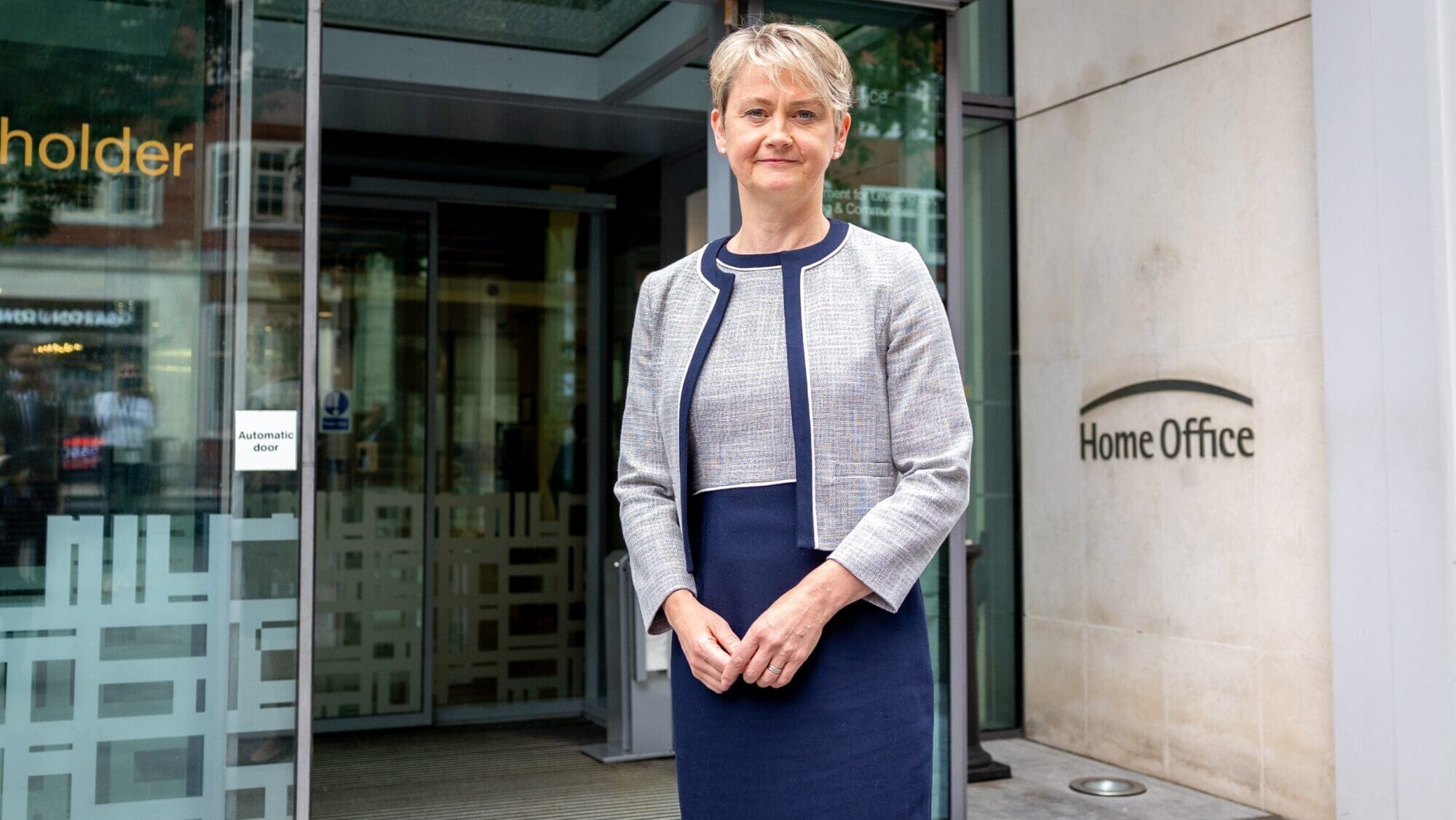
Labour Home Secretary Yvette Cooper
Photo: UK Home Office, CC BY 2.0, via Wikimedia Commons
It’s difficult to imagine how the Labour government’s approach to illegal migration could be any softer than that of the Conservative administrations that came before it. But new home secretary Yvette Cooper is giving it a good go.
For starters, her department is labelling illegal Channel crossings not as “illegal” but “irregular.” This, said Reform leader Nigel Farage, demonstrates from the off that “Labour wants to bury illegal immigration as a subject.”
Labour wants to bury illegal immigration as a subject and they are now using the word ‘irregular’.
— Nigel Farage MP (@Nigel_Farage) July 24, 2024
We will not let them get away with it. https://t.co/9jE40PstUv
Now, after barely three weeks in office, Cooper has announced plans to fast-track the processing of more than 100,000 asylum claims of people the last government said would not be permitted to settle here. The Refugee Council—a refugees’ rights organisation which was openly delighted by the home secretary’s appointment—estimates that up to 90,000 people will be granted asylum in the UK.
As ineffective as the Conservatives might have been at tackling illegal migration, former home secretary James Cleverly was right to describe this move as an “effective amnesty” which will encourage more migrants to risk the dangerous journey across the Channel. Before the July 4th election, migrants themselves said a Labour government would be an “incredible” boost for crossings.
More than 2,000 migrants have crossed the Channel since Starmer became prime minister earlier this month, and the figure stands at almost 16,000 for the year as a whole.
Only small pockets of illegal migrants are expected to be returned to their countries of origin. Sir Keir Starmer’s Labour Party has long indicated that it would direct its attention not to deterring migrants from crossing the Channel but to “smashing the gangs” behind this movement, instead. It scrapped the Conservative government’s scheme for deterring illegal migration—the ‘Rwanda Plan’—in its first full day in office.
Farage yesterday used his maiden speech in Parliament to highlight that, while previous Labour governments deported illegal migrants in large numbers, “none of that happens anymore” because of the “increased role” of the European Court of Human Rights (ECHR), whose convention was enshrined into British law under Labour.
My maiden speech to the House of Commons. I’ve had a long time to think about it! pic.twitter.com/qwfzbGFMyz
— Nigel Farage MP (@Nigel_Farage) July 23, 2024
The Reform leader said the ECHR has “now completely outlived its usefulness” and called for a referendum on Britain’s membership of it.
The Conservatives, who pretended to be interested in questioning the overreach of the court in UK politics, are highly unlikely to back this proposal. Starmer has also made it clear that, under his leadership, “we will never withdraw.”
